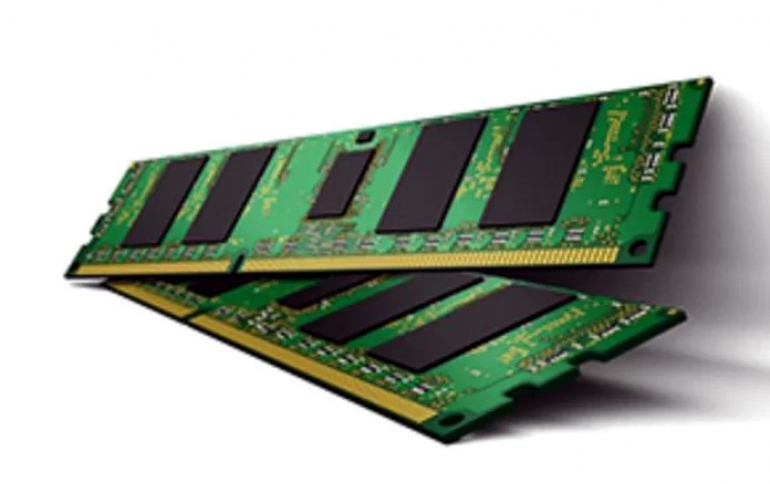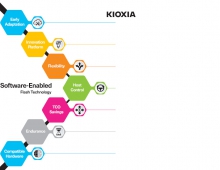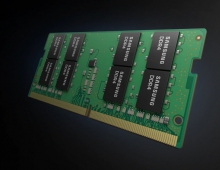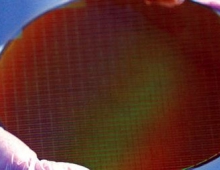
China-based Memory Fabs Continue Normal Operations, Says TrendForce
Wuhan coronavirus outbreak’s impact to the memory industry is still low, according to DRAMeXchange.
The research division of TrendForce claims that no DRAM or NAND flash fab in China has closed or partially suspended operations at the present. This means that the
overall production is expected to remain unaffected for DRAM and NAND flash in the short run. In addition, TrendForce maintains its previous forecast of a slight QoQ increase in 1Q20 DRAM and NAND flash contract prices.
In terms of DRAM supply, one of China’s major DRAM manufacturers, CXMT, is located in Hefei, near the city of Wuhan; currently, the fab is operating as usual. CXMT’s expansion plan is still on schedule, unaffected by the outbreak for the time being. In terms of shipping, CXMT is also one of the major semiconductor companies in China. The company holds a national special license and is not affected by the current ban on domestic transportation of goods. Thus, CXMT’s customers in the country can still ship on time. Another Chinese DRAM manufacturer, JHICC, is in a similar situation as CXMT. Its fab remains operational as usual.
In terms of DRAM suppliers, of the three major suppliers, only SK Hynix’s production base in Wuxi is located in China, but since it is far away from Wuhan, it has not been directly impacted by the outbreak. Also, during the Chinese New Year, the shifts of most fab employees have already been scheduled, so the production line remains operational. "Overall, there is currently no substantial impact on DRAM production, but it is still imperative to monitor whether the potential spreading of the virus can affect China’s logistics and transportation system, subsequently causing a nationwide material shortage," DRAMeXchange says.
Regarding NAND flash supply, both Yangtze Memory Technologies Co Ltd (YMTC) and XMC have announced that non-frontline personnel can work from home, but fab personnel must report to work as usual according to the Chinese New Year schedule. Personnel entry and exit are also strictly monitored. However, due to quarantine measures, there are concerns regarding resumption of work after February 9 in spite of efforts by YMTC and XMC to arrange sufficient manpower on the production line to maintain fab operations. The current capacity of YMTC’s Wuhan fab accounts for only around 1% of wafer input of the entire NAND flash industry, so there is limited direct impact on market supply. However, if the epidemic is prolonged, it may affect the expansion plan scheduled to begin in 2Q20, which requires subsequent follow up.
YMTC confirmed that it had not ceased production.
“At present, production and operations at YMTC are proceeding normally and in an orderly manner,” a company spokesman wrote in a statement.
The spokesman said no employees had been confirmed as infection cases, and the company had enacted certain isolation measures and partitions to ensure the safety of employees.
State media reported that the chip maker did not cease operations over the Lunar New Year holiday.
Meanwhile, Semiconductor Manufacturing International Corp (SMIC) also kept production running through the holiday break.
In a post on social media, the company said it organized a work group before the holiday to ensure plants could stay open, while protecting the safety of employees and adhering to government regulations.
“SMIC needs to ensure that factory production runs 365 days a year and 24 hours a day to meet customers’ fabrication needs,” the company said in the post.
The company, which rivals Taiwan Semiconductor Manufacturing Co, has facilities in Tianjin, Shenzhen, Beijing, and Shanghai.
Outside of Wuhan, Samsung and Intel have NAND flash production bases in Xi’an and Dalian, respectively. Samsung’s Xi’an production base is the center of this year’s expansion. On the other hand, Intel has no plans to expand its Dalian base currently. According to TrendForce’s investigation, since the locations of both bases are relatively less affected by the epidemic, besides basic preventive measures, indirect labor will resume work on February 3 according to the Chinese government announcement, and the fabs will operate as usual.
Other tech frims
Nina Kao, TSMC’s spokeswoman, said that the company currently “maintains partial operation” in China and it plans to resume full operation on Feb 10.
TCL Corp, makers of display panels and televisions, said on Monday that while the lines at its China Star Optoelectronics Technology Unit (CSOT) for LCD screens “operate non-stop all-year round,” its Wuhan factories can expect delays in manufacturing materials supply.
BOE Technology Group Co Ltd, another Chinese maker of displays, told state media outlet Global Times that one of its plants at Wuhan had encountered a supply shortage due to amid the virus.





















